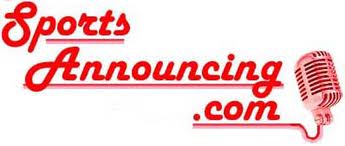 SportsAnnouncing.com
SportsAnnouncing.com
Covering Game Presentation For Over 30 Years
Supplies
- Home
- Supplies
Let’s take a look at the various supplies you should have with you to be an effective announcer. We will also take a look at additional supplies later on.
PENCILS
Use pencils when announcing. Very simply put, pencil marks can easily be erased and if you are using a scorebook, any corrections that would need to be made can be done so cleanly. Some announcers like to track some stats during the game or make marks on their paper to keep up with the game. Pencil marks make it easiest.
Another advantage to pencils lies in cold-weather environments. Most people would think ice hockey, but in outdoor sports late in the fall or early in the spring, it can and does get cold in parts of the country. Should you be in a cold-weather situation, consider whether or not you are going to wear gloves and if you can still write without any difficulty.
In most sports, it’s best to avoid writing with a pen due to all of the information you’re going to track during the game. It’s quite possible to write down the wrong substitute in the wrong spot or mark a play incorrectly. It’s better to have something you can erase just to make sure you’re correct with all of your stats.
It is also recommended that you use a mechanical pencil as they never need sharpening. Make sure to carry several with you as some leads break easier if you accidentally drop your pencil. Typically carry at least two, if not more, at all times.
NOTEPAD or EXTRA PAPER
Be prepared. Extra paper will allow you to rewrite the rosters if the one provided is messy or not in order, write down announcements people want you to make, make some notes about what’s going on in the game, etc. You can use the paper to track stats, game play-by-play and more. Always make sure you’ve got some extra paper handy, you may never use it but when you do, you’ll really be happy.
With the advent of computers and tablets, some go completely paperless. This is great for the environment until someone wants to write down a license plate, concession special, special welcome or another announcement they want made but don’t have all the information right there with them. If you have a small notepad for them to use, it will allow them to write down what they need without disturbing you while you’re announcing. It’s a lot easier to read from a piece of paper than to type on your computer when you need to be doing something else.
Included with each sport’s section, you will find assistance pages to facilitate starting line-up announcements and other details of the game. Make copies of these and use them as necessary. Some times you won’t need to use them because you have another source for your information. These are provided to make things easier for the announcer, however we always encourage people to try new things and develop their own ideas.
BINOCULARS
In many outdoor sports, you need binoculars because your vantage point puts you 300-1,000 feet from the players you are trying to announce. In sports like baseball and softball, you don’t need them very often but it’s a good idea to use them to check the defensive alignments each inning in case there have been changes. Unless you’re doing a professional baseball game when the umpires signal their changes, it’s possible to miss a defensive alignment change for a couple of innings.
In sports like football, soccer, lacrosse, and field hockey, binoculars will make it easier for you to spot the important pieces of what you need to announce. With uniform styles become more and more intricate, it can be hard to decipher numbers from a distance, so having a pair of binoculars will help you do a better job identifying who is on the field, who scored, assisted or is in goal.
SPOTTER
You really only hear the word spotter used for football announcers but every sport has them on the professional level. Some roles of the spotter in various sports include:
- Facilitate P. A. announcements between the game production staff and the announcer
- Assist the P. A. announcer with plays on the field, calling out who made the tackle or scored a goal
- Act as a liaison between the fans and the P. A. announcer so fan requests do not distract from the job at hand
- Jump on the mic in the event the P. A. announcer has to leave the announcing position for whatever reason.
Finding a spotter is simple, all you need to do is find someone who is interested in that sport. If you’re announcing a sport that you’re not as knowledgeable of the rules as you’d like to be, the spotter can teach you a lot and guide you in the right direction when it comes to official’s calls, game rules, and proper game etiquette.
Once you’ve identified your spotter, make sure they understand their role and what they will be responsible for. What one announcer wants out of a spotter, another may not want. While one may only track the home team’s accomplishments, another will only track the offense.